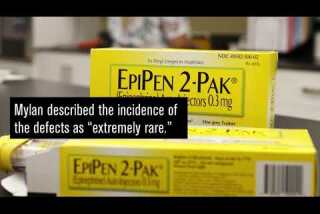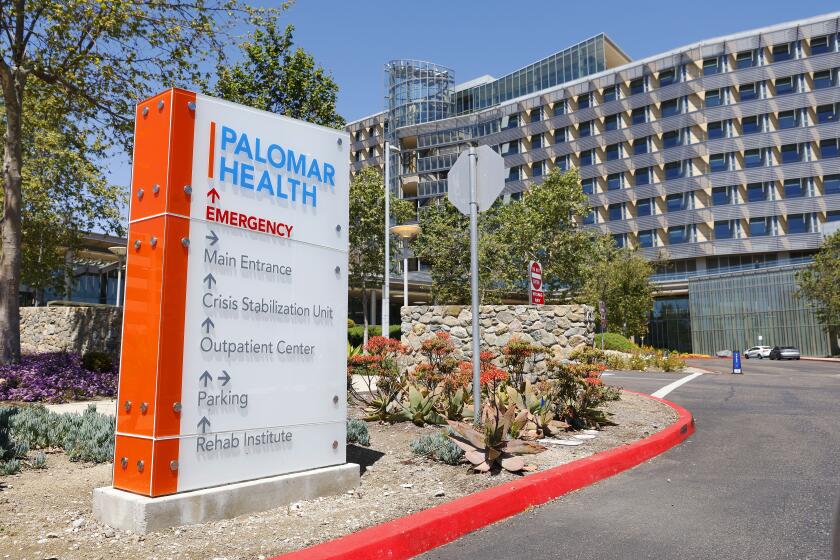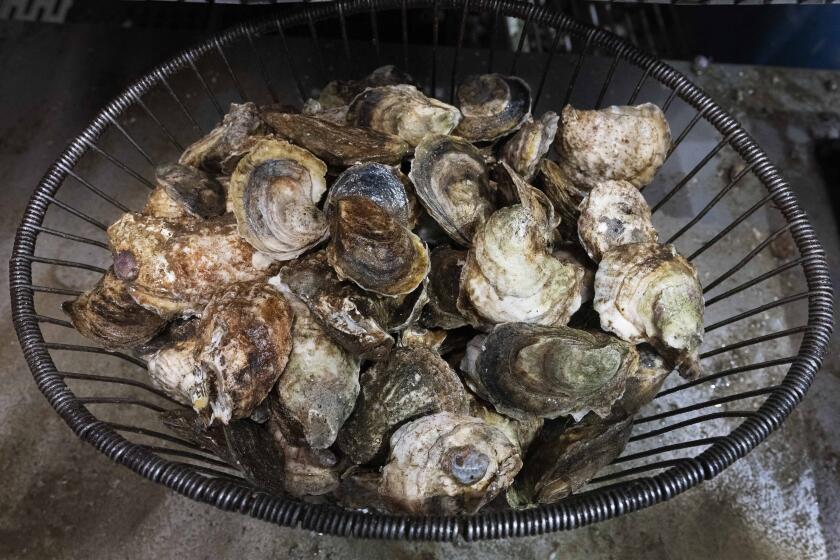National group sues Poway, L.A. school districts over hot dogs, bacon, sausages, bologna
Hot dogs, bacon, sausages, bologna and all other processed meats are in the crosshairs of two new lawsuits that target lunch menus for the Poway and Los Angeles unified school districts.
The suits, filed Wednesday in Superior Court by the nonprofit Physicians Committee for Responsible Medicine in Washington, D.C., are the advocacy group’s planned first volley of litigation on this issue.
They ask the court to bar the districts from serving meals with cured and otherwise modified sources of animal protein on grounds that such foods violate the California education code’s requirement that all school foods served to students be of the “highest quality” and “greatest nutritional value possible.”
In its legal complaint, the committee pointed to recent studies from the World Health Organization and the National Cancer Association concluding that eating processed meat increases the risk of colon and other cancers.
Dr. Neal Barnard, the group’s founder and president, said he knows there will be public backlash to the idea of suing over sausage in schools. But he said he sees this crusade as equally important to the fight against cigarettes.
“Scientifically, there is no argument. Everybody knows we shouldn’t be serving this stuff to children,” Barnard said.
The Poway district is out on spring break this week and none of its officials responded to requests for comment, while a spokeswoman for Los Angeles Unified said the lawsuit would be evaluated once it has been received.
A quick look at the menu for Poway’s elementary schools, which is posted on the district’s website, shows that one processed-meat option was served each day of the first week in April. It was turkey hot dogs on Monday, French toast and sausage on Tuesday, chicken corn dog on Wednesday, chicken nuggets on Thursday and stuffed-crust pepperoni pizza on Friday.
But there were also plenty of non-processed options available, from bean and cheese burritos on Monday to orange chicken with rice on Thursday. Yogurt with wheat or Cheez-It crackers is available daily.
The options are similarly varied at Los Angeles Unified, according to menus posted on that district’s website. On one recent day, for example, the menu offered a barbecued pork or “Yellow Submarine” sandwich along with mixed vegetables, chef’s salad and cheese flatbread.
Barnard, who earned his medical degree from George Washington University, said the committee advocates nationwide on a range of issues — from plant-based diets to stopping animal-based research. In the case of school lunches, he said the goal is to remove all processed meats even if districts are doing a decent job offering a variety of choices for students.
“Simply providing the foods sends the message that processed meats are healthful and part of a nutritious diet, which is clearly at variance with scientific fact,” Barnard said.
To embark on its litigation, the group needed California residents who could argue that they had been directly harmed by a school district’s meal offerings. The committee chose the Poway and Los Angeles districts because they served processed meats and because the committee was able to find residents in those communities who agreed to put their names on the lawsuits.
“We’re filing in places where we had people who were personally affected by this and were willing to step forward,” Barnard said.
In Poway, parents Tracy Childs and Steven Sarnoff agreed to participate in the litigation. In Los Angeles, it was Los Angeles Unified teacher Jennifer Mack.
Childs said her children have already graduated from the Poway district but she still owns property, and pays property taxes, within its boundaries. A vegan and a nutritionist who has been teaching health education classes based on the committee’s Food for Life program since 2005, Childs said her children got a great education from Poway Unified but believes the district could be doing better on the food front.
“They’re breaking the law because it states that schools should be serving the best foods possible, and that is not processed meats,” she said.
Though she has not eaten meat since she turned 17, Childs said she does not think the district needs to ban meat outright.
“I don’t expect that the school district would go meat-free anytime soon, but they could, I think, make better choices,” Childs said.
The scientific evidence that processed meats can cause cancer is well established, said Dr. Otis Brawley, chief medical officer for the American Cancer Society. Such products are listed in Group One of the International Agency for Research on Cancer’s evidence-based carcinogen classification system — along with cigarettes and asbestos.
Brawley stressed the importance of realizing that a Group One listing refers to the high level of scientific evidence available about a given substance’s ability to cause cancer, not about how many cancer cases it actually causes.
“A lot of people are taken aback when they learn that bologna is in the same category as cigarettes, but they need to understand that the estimated number of cancer deaths from processed meat is about 34,000 per year while it’s 1 million for smoking,” Brawley said.
He also said the American Cancer Society recommends limiting consumption of processed and red meats and supports the decisions of those who opt to go vegetarian or vegan as long as they make sure they consume enough plant-based protein.
The American Association of Meat Processors pushed back against the lawsuits Wednesday afternoon with a statement attributed to its executive director, Chris Young.
“Processed meats make up a safe and nutritious part of a balanced diet and there is no scientific data to support removing them from school menus for being unhealthy,” Young said. “When it comes to prevention of cancer and other chronic diseases, it is impractical to segregate a single food as a cause of those issues. Many of the naturally occurring chemicals from healthy fruits and vegetables in our food could be classified as carcinogens. But that doesn’t mean schools should stop serving them since they do not present a health risk at normal levels of consumption. We stand by the nutrition benefits that meat, both fresh and processed, provide for growing children.”
Health Playlist


Video: Leaders urge public to help extinguish hepatitis outbreak

San Diego starts cleansing sidewalks, streets to combat hepatitis A

Video: Scripps to shutter its hospice service

Video: Scripps La Jolla hospitals nab top local spot in annual hospital rankings

Video: Does a parent's Alzheimer's doom their children?

EpiPen recall expands

Kids can add years to your life
paul.sisson@sduniontribune.com
(619) 293-1850
Twitter: @paulsisson
UPDATES:
This article was update to clarify the American Cancer Society’s stance on processed and red meats.
Get Essential San Diego, weekday mornings
Get top headlines from the Union-Tribune in your inbox weekday mornings, including top news, local, sports, business, entertainment and opinion.
You may occasionally receive promotional content from the San Diego Union-Tribune.












